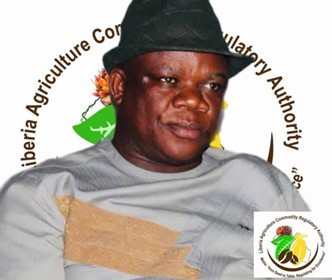The Liberia Agriculture Commodity Regulatory Authority (LACRA) finds itself embroiled in a multifaceted crisis, grappling with financial mismanagement, administrative dysfunction, and allegations of corruption. These issues, coupled with internal conflicts and strained relations with cocoa exporters, have significantly hampered the organization’s ability to effectively regulate the agricultural commodity sector. The situation paints a troubling picture of an institution struggling to fulfill its mandate and raises serious concerns about the future of Liberia’s agricultural trade. The crisis is further complicated by a lack of transparency and accountability, fueling distrust among employees, stakeholders, and the public.
At the heart of LACRA’s woes are allegations of financial impropriety, including the alleged disappearance of $354,510 in export royalties. This financial mismanagement comes on the heels of pre-existing financial difficulties inherited from the previous administration. Furthermore, LACRA’s Taskforce has been accused of harassing registered and permitted cocoa exporters, casting doubt on the fairness and impartiality of the organization’s regulatory practices. These actions have created a hostile environment for businesses operating within the cocoa sector and threaten to undermine investor confidence in Liberia’s agricultural market. The unresolved financial issues, coupled with the allegations of harassment, have eroded trust between LACRA and the exporters it is meant to regulate.
Internal conflicts further exacerbate the challenges facing LACRA. Disputes between senior management and staff, coupled with unresolved grievances regarding low wages and a lack of benefits, have created a demoralized and unproductive workforce. Employees have expressed frustration with the lack of response from Board Chair Josephine Francis and view recent infrastructure renovations as superficial attempts to address deep-seated systemic problems. The lack of meaningful action from the Board of Directors to address these concerns has only deepened the sense of disillusionment among LACRA employees and further contributed to the organization’s dysfunction.
Adding to the atmosphere of distrust is the lack of transparency regarding the findings of a 2024 audit conducted by the General Auditing Commission (GAC). The unpublished report fuels speculation and suspicion about the extent of the financial mismanagement within LACRA. The absence of publicly available information hinders accountability and prevents stakeholders from gaining a clear understanding of the organization’s financial health and operational challenges. This lack of transparency further undermines public confidence in LACRA’s ability to effectively manage public resources and regulate the agricultural sector.
LACRA Director General Christopher Sankolo, however, refutes the allegations of financial malpractice and irregularities, attributing the reports to internal propagandists seeking to undermine his efforts. He maintains that upon assuming his role, he discovered leakages and compromises between staffers and exporters, prompting an internal review of export records. Sankolo claims this review uncovered irregularities, including the alleged smuggling of six containers of cocoa beans, resulting in significant losses of export royalties. He further asserts that his administration has increased LACRA’s bank balance from $470 to $700,000. His narrative presents a counter-argument to the allegations of financial mismanagement, framing the situation as resistance to his efforts to implement reforms and address pre-existing corruption within the organization.
Despite Sankolo’s claims, the underlying concerns regarding financial mismanagement, internal conflicts, and lack of transparency remain. The conflicting narratives underscore the urgent need for an independent and thorough investigation into LACRA’s operations. The unpublished GAC audit report should be released to the public to ensure transparency and accountability. Furthermore, a comprehensive review of LACRA’s regulatory practices is necessary to address the concerns raised by cocoa exporters and ensure a fair and equitable business environment. Addressing these issues is crucial for restoring public trust in LACRA and ensuring the long-term health and stability of Liberia’s agricultural sector. Without decisive action and meaningful reforms, the ongoing crisis at LACRA threatens to undermine Liberia’s agricultural development and economic growth. The calls for presidential intervention highlight the gravity of the situation and the need for decisive leadership to address the systemic issues plaguing the organization.














